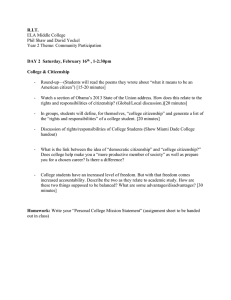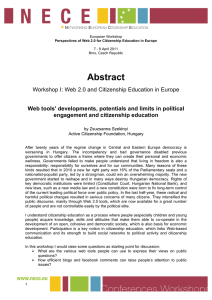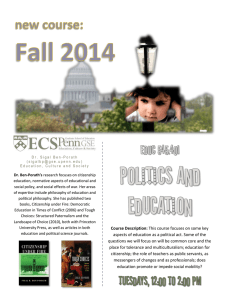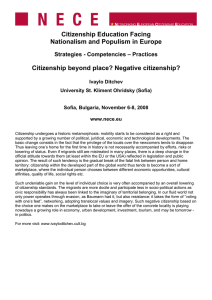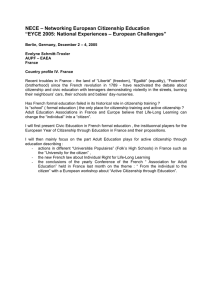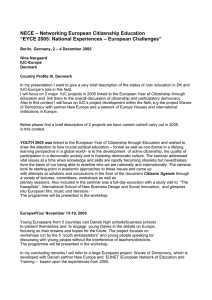Review Article 59 Journal of Computer Assisted Learning
advertisement
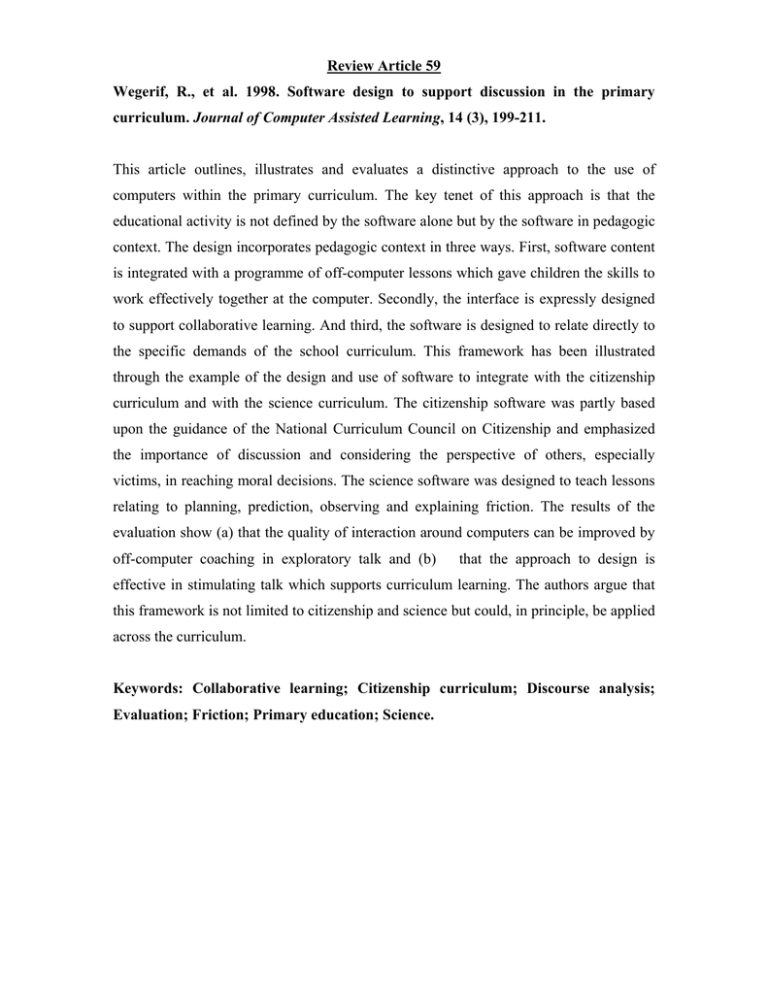
Review Article 59 Wegerif, R., et al. 1998. Software design to support discussion in the primary curriculum. Journal of Computer Assisted Learning, 14 (3), 199-211. This article outlines, illustrates and evaluates a distinctive approach to the use of computers within the primary curriculum. The key tenet of this approach is that the educational activity is not defined by the software alone but by the software in pedagogic context. The design incorporates pedagogic context in three ways. First, software content is integrated with a programme of off-computer lessons which gave children the skills to work effectively together at the computer. Secondly, the interface is expressly designed to support collaborative learning. And third, the software is designed to relate directly to the specific demands of the school curriculum. This framework has been illustrated through the example of the design and use of software to integrate with the citizenship curriculum and with the science curriculum. The citizenship software was partly based upon the guidance of the National Curriculum Council on Citizenship and emphasized the importance of discussion and considering the perspective of others, especially victims, in reaching moral decisions. The science software was designed to teach lessons relating to planning, prediction, observing and explaining friction. The results of the evaluation show (a) that the quality of interaction around computers can be improved by off-computer coaching in exploratory talk and (b) that the approach to design is effective in stimulating talk which supports curriculum learning. The authors argue that this framework is not limited to citizenship and science but could, in principle, be applied across the curriculum. Keywords: Collaborative learning; Citizenship curriculum; Discourse analysis; Evaluation; Friction; Primary education; Science.
